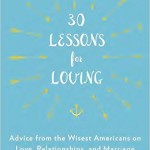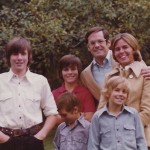Are you tired of New Year’s resolutions lists by now? I am pretty much satiated with blogs and media telling me how to lose weight, start exercising, get rich, etc., in 2018. And I recall reading that only a tiny fraction of New Year’s resolutions are ever acted upon. Is there a better source of wisdom for the new year? I think there is.
tiny fraction of New Year’s resolutions are ever acted upon. Is there a better source of wisdom for the new year? I think there is.
I reviewed the data we gathered from more than 1,200 elders in the Legacy Project, who shared their lessons for living for future generations. Based on the surveys and interviews, here are resolutions in five areas of life that are worth a try. These suggestions from the oldest Americans may serve you better than the typical ones we make (and break) each year.
Work. “Ask yourself: Are you glad to get up in the morning?” When it comes to your job, the elders propose a diagnostic test: How do you feel when you get up on a workday morning? You may be ambivalent about your job and have your ups and downs. But when it comes down to it, how do you feel when you are having that first cup of coffee?
Are you at least in a tolerable mood, looking forward to something about work? If instead you feel dread and foot-dragging, the elders say it may be time for a change. As Albert, 80, put it: “It’s a long day if you don’t like what you’re doing. You better get another job because there’s no harsher penalty than to wake up and go to work at a job you don’t like.”
Marriage. “Let your partner have his or her say.” From marriages lasting 40, 50, 60 or more years, the elders find that deliberately showing your partner that you are listening is a major way to defuse conflict. Natalie, 89, told me: “I learned that when you’re communicating, to really listen to what the other person is saying. When I got married, instead of listening to my husband, I would be thinking what to say in reply, to contradict or to reinforce what I was trying to say. That is not the best thing when you communicate. You’ve really got to listen and let them have their say. When I was in my twenties, I had all the answers. Now that I’m in my eighties, I’m not so sure my answers are always right.”
April, 70, offered a specific technique: “If we were in some sort of struggle over something we would stop and say: ‘Which one of us is this more important to?’ And when we could figure that out, the other one found it so much easier to let go.”
Child-rearing. “Abandon perfection.” The elders we surveyed raised over 3,000 children, and from that experience they had a clear lesson: Resist the temptation to seek perfection, both in your kids and in your parenting. We logically recognize the futility of creating perfect children, but emotionally we often hold ourselves up to a perfect standard. The elders, in contrast, are the first to tell you: No one has perfect children. They admit that each of their kids experienced difficulty, a period of unhappiness, a wrong turn. They suggest we lighten up regarding our children and assume that failure is inevitable at times. Gertrude, 76, said: “We were going to have perfect children, and we were going to be perfect parents. It doesn’t work that way.”
Aging. “Accept it.” Unless you’ve been living in a bomb shelter over the past decade, you’ve seen the barrage of advertising for “anti-aging medicine.” There’s a whole subculture of practitioners promising to defeat the aging process. To this the elders say: Forget about it! Instead, they encourage you to accept the aging process and to adapt activities to your changing physical abilities and circumstances. The very active Clayton, 81, noted: “You kind of grow into it. You realize that if you can’t be running this fast, well, you just go slower, but you keep on running. Do what you’re able to do and accept that there might be some limitations.” And don’t waste a penny on “anti-aging” products.
Regrets. “Go easy on yourself.” I recently was asked to do a post for CNN on the topic of how to avoid having regrets later in life. The elders do in fact have some good suggestions on that topic. But there’s another point they make: The goal of living a regret-free life is unrealistic. Their recommendation: Go easy on yourself regarding the mistakes and bad choices you have made. Alice, 85, pointed out: “What I have learned from the mistakes that I’ve made is that you can’t change what’s happened in the past. You have to accept yourself, warts and all. Once a decision is made, you don’t get anywhere by looking back and second-guessing it. As somebody taught me years ago: “if you’ve bought a pair of shoes, don’t look at the shoes in the next store window!”
And a last resolution: don’t forget to seek advice from elders you know. They have practical tips for living a more fulfilling life. Happy New Year!






